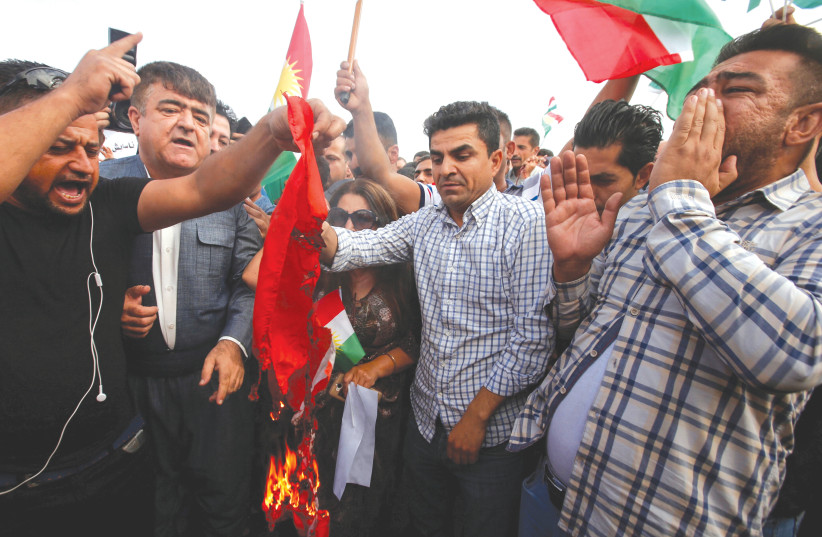A new study has found that the best way to allow Kurdish communities in Iran to flourish from their rich minerals, dense forests and massive water deposits is for a “radical decentralization” of Iranian central government activity.
The University of Exeter study, which was published in the Journal of World Systems Research, cites Iran's deforestation, exploitation of the environment and the extraction of precious metals, such as gold and aluminum, as issues that have resulted in environmental and health issues among the Kurdish people – as well as droughts and water shortages.
Iran's economic and development policies in Kurdistan are furthermore seen by locals as unsustainable, discriminatory and colonialist, while Kurdish environmental groups have been highly targeted by Iran’s security and judicial systems, the study purports.
"Radical decentralization"
“The Iranian State’s economic and developmental approach to Kurdistan’s natural resources, and the extraction and exploitation of these resources, have resulted in extensive environmental degradation, affecting public health,” said independent researcher and study co-author Dr. Mansour Sohrabi.

Researchers say Iran’s method of water management is seen as destructive and mismanaged, as it transfers water from Iranian Kurdistan to other regions – thus threatening desertification and land subsidence. 22 dams have been constructed in Kurdistan as part of Turkey's Southeastern Anatolia Project (GAP), which has an adverse impact on the landscape and culture in the region.
“In recent decades, Kurdistan’s natural environment has been subject to massive degradation, and Kurdistan’s natural resources—which should have been the source of wealth and prosperity of the region’s population—have been comprehensively exploited by different state institutions, among them the Islamic Revolutionary Guard Corps (IRGC) and its sub-organizations and contractors,” said Dr. Allan Hassaniyan from the University of Exeter, who co-authored the study.
The study concludes that the Kurdish people could stand to better benefit from Kurdistan's natural resources if there was a decentralization of the political decision-making system in Iran, which would allow Kurds to participate in different aspects of political and economic activities, thus allowing them to directly impact initiatives that impact their ecosystems.
